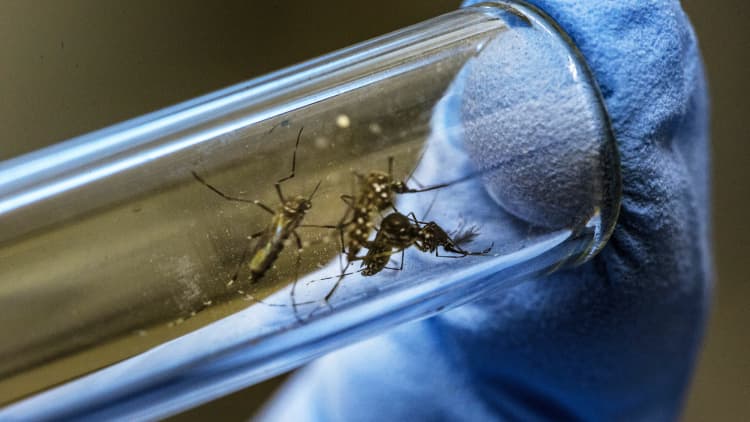
A day after the CDC warned pregnant women against traveling to one neighborhood in Miami after learning the Zika virus is spreading there via mosquitoes, consumers looking to cancel their flights into the city may encounter difficulty.
To date, travel-associated cases make up the vast majority of Zika infections in U.S. In these instances, patients have brought the virus back to the U.S. after visiting Zika-prone regions. But officials are now dealing with a fresh problem: evidence of active transmission by mosquitoes in the Wynwood neighborhood of Miami. The evidence prompted the Centers for Disease Control and Prevention to issue travel guidance on Monday, urging pregnant women to avoid the area.
Zika is transmitted primarily through mosquito bites and has been linked to congenital microcephaly and other serious brain defects among babies born to mothers who had the virus. There is also evidence that the virus can be spread through sexual contact with an infected person.
But those wishing to alter their travel plans may find hurdles ahead.
At American Airlines, which has the most flights into Miami International Airport, there has been no change to its cancellation policy in light of the latest Zika developments.
"We don't have any plans to make changes to our policy," said Ross Feinstein, spokesman for the airline.
American Airlines charges customers flying domestic at least $200 to change their ticket before the scheduled day of travel. Its website notes the charge can vary depending on the type of ticket booked and the fare of the replacement ticket.
Meanwhile, Delta is directing customers to contact it if they have concerns about traveling to Miami and want to change their plans.
"We've had flexible reacommodation available for anyone concerned about traveling to an area with Zika present since late February," said Morgan Durrant, a spokesman for the airline.
"This way we can work with them on a case-by-case basis, as situations vary," Durrant said.
United said it's "monitoring" the situation, but is following the CDC guidelines, which to date only say pregnant women should avoid one particular section of Miami.
"Right now, we don't have a specific waiver in place for Miami," said Charlie Hobart, a United spokesperson.
But if customers have questions, Hobart urged them to call the airline, which will deal with the situation on a case-by-case basis.


